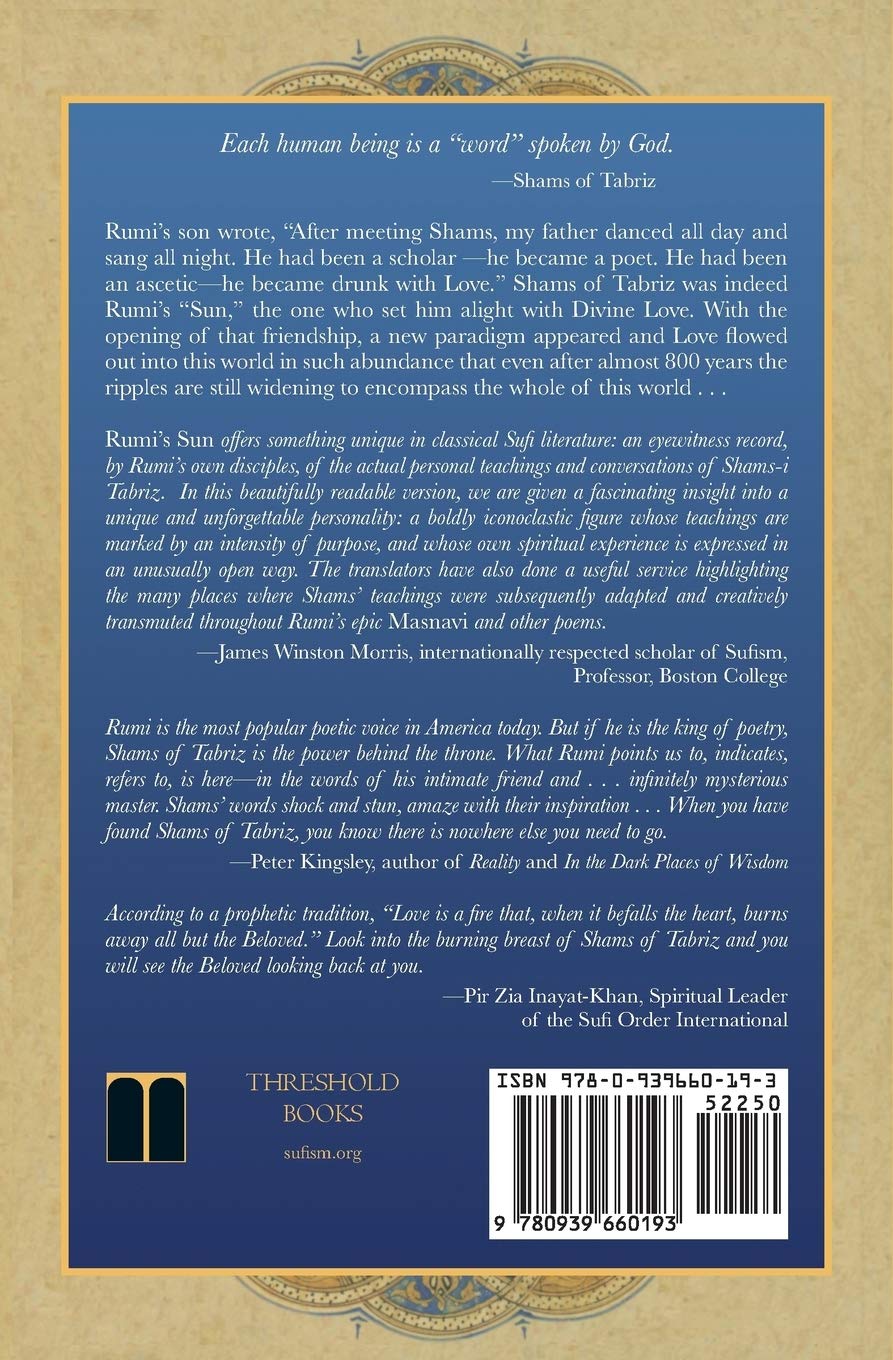

And what a lie upon Allah’s religion, the Muslims are not beyond infidility and religion, rather they follow the religion revealed by Allah, and these Batinis Sufis want to destroy the religion of Truth and replace it with their own religion inspired by Shaytan. The man of God has ridden away from Not-being,Ĭomment: The last sentence shows that Rumi believes his Peer Shamsi Tabriz is in fact Allah, and the man of Allah seek and find him. The man of God right and wrong are alike. The man of God is beyond infidelity and religion, The man of God is made wise by the Truth, The man of God rains pearls without a cloud.

The man of God is a king ‘neath darvish-cloak, The man of God is distraught and bewildered, The man of God is beyond infedilty and religion Nicholson translated some poems of this divan and called his book: “Selected poems from “Divan e Shams e Tabrizi”” and this book has been published by Ibex publishers. One can see in the poems of this “Divan” clear call to Wahdatul Wujud (unity of existence) and Wahdatul Adyan (unity of religions). Source of these quotes: “Rihlah al-Imam Badrudin Al-‘Ayni ila Quniyah wa rayiuhu fi Jalaludin ArRumi was Kitabihi Al-Mathnawi” of Muhammad ibn Abdillah Ahmad Al-Qunawi, small epistle published by Adwa Salaf. “Ibn Taymiyah (rah) said: there is a group whose Kufr is worse than the Kufr of the Jews and Christians and they are: Muhyiudin ibn Arabi, ibn Hud, Ibn Sab’iin, Afeef At-Tilmisani, Jalal Ar-Rumi and Umar ibn Al-Faridh” “Then the Jalal mentioned abandoned being busy (with religious knowledge from the Fiqh of Abu Hanifah) and isolated, he left his children and his Madrasah and traveled in the land and busied himself with poems, most of them in Persian, and he authored a book called “Al-Mathnawi” and it contains many things that the Shar’ and pure Sunnah reject, and many people became misguided because of it, especially the Roman (Meaning Muslims of Turkey)…”Īl-‘Ayni also wrote in his “Kashf Al-Qina’ Al-Marni” among benefits p 228-229: ImamAl-‘Ayni Al-Hanafi also wrote in his Tarikh entitled “Aqd Al-Jaman” about Jalaludin Ar-Rumi: And he linked them with Hulul, heresy and Ittihad” and he said afterwards “And likewise most of late scholars from the people of Fiqh and Hadith, they disparage them with a great disparagement.”

“Likewise The Shaykh Al-Imam Abul ‘Abbas Ahmad ibn Taymiyah Al-Harani Al-Hanbali disparaged him in his book entitled: “Bughyah Al-Murtad fi Rad ‘Ala Ahl Az-Zanadiqah wal Ittihad” and he linked him to the creed of Hulul and Ittihad, and he mentioned a group among whom: Muhyiudin ibn ‘Arabi the author of “Al-Fusus”, ibn Sab’iin, ibn Hud, At-Tilmisani and Jalal Ar-RUMI. Hafiz As-Sakhawi, who was also student of Imam Al-‘Ayni, mentioned in his “Qawl Al-Munbi” that Al-‘Ayni wrote in his “Tarikh” about ibn Al-Faridh: Imam Badrudin Al-Ayni, Imam of the Ahnaf of is time, followed Shaykhul Islam Ibn Taymiyah in condemning Jalaludin Rumi and linking him to school of Wujudiyah and ibn Arabi. The Sufi Tosun Bayrak even claim in the introduction of his translation of Ibn ‘Arabi’s book “Divine governance of the human kingdom” that Ibn ‘Arabi in his way to Damascus met Rumi before Rumi went to Qoniya, and later ibn ‘Arabi’s student Sadr Qunawi met Rumi many times in Qonya.

Rumi wrote later his Sufi tales called “Mathnawi” and he died in 672H. Then there are different stories, but some people say Shamsi Tabriz came later and was assassinated by some students of Rumi. Then he was further threatened and he went to Damascus, and Rumi became sad of this separation and he wrote then his poems called “Divan e Shams e Tabrizi”. And Rumi’s student seeing the bad influence of Shams Tabriz on Rumi threatened Shams Tabriz who fled to Tabriz, and Rumi went there and brought his Peer back. In 642 H, Shamsi Tabriz came to Qonya, and Rumi became his student, and he was so attached to him that he left teaching and would isolate with Shamsi Tabriz. Then after residing in different land, he and his family settled in Qonya, where Rumi became a teacher in the Madrasah established by his father. His father left the city, and Rumi met in travel Farid ud Din ‘Attar, who gave his book “Israr-nama” (book of mysteries) to Rumi while he was a child. Jalal ud Din Rumi was born in Balkh in 604H.


 0 kommentar(er)
0 kommentar(er)
